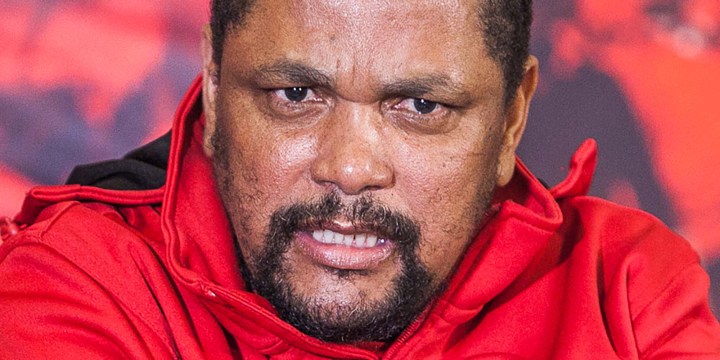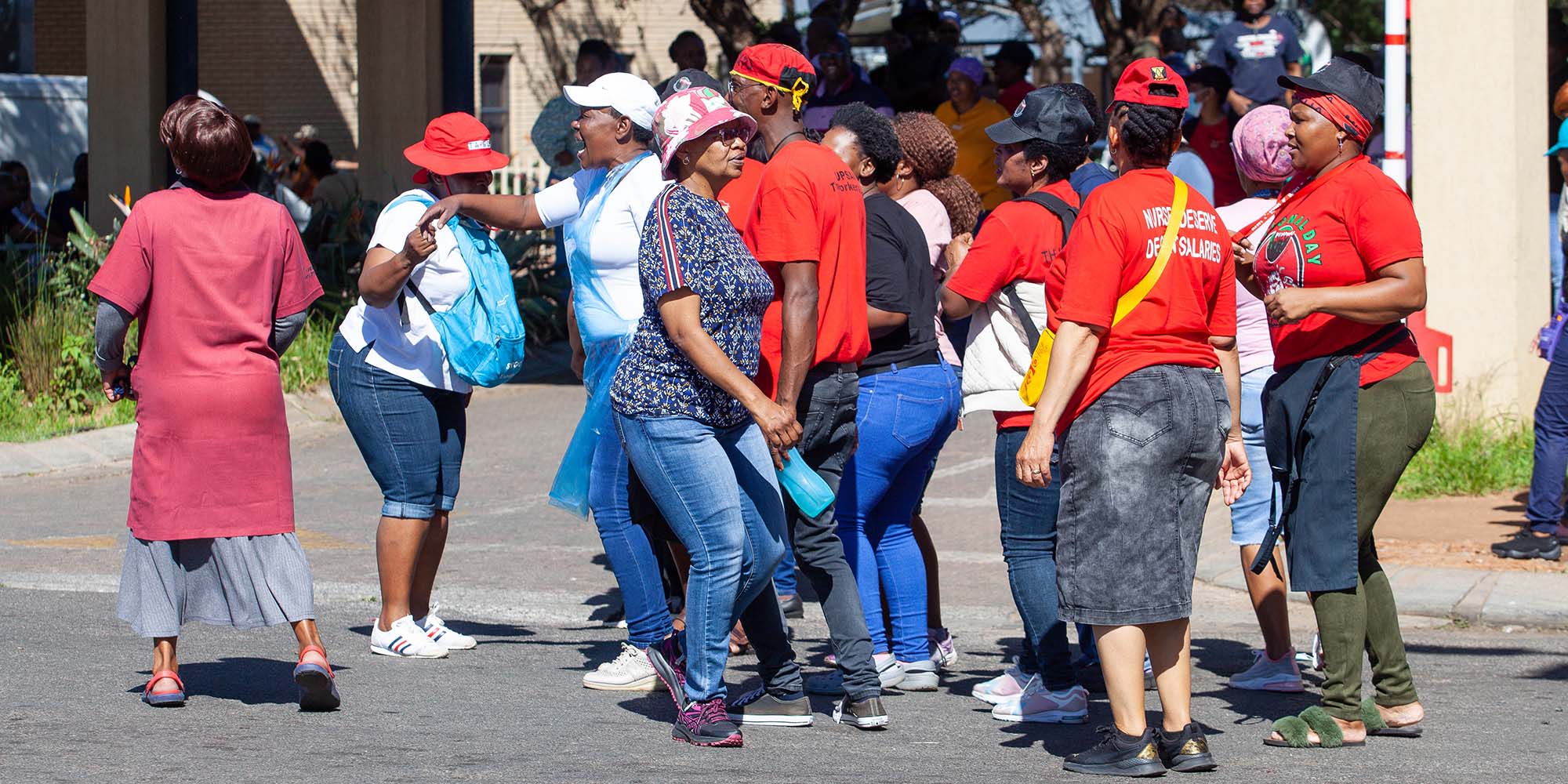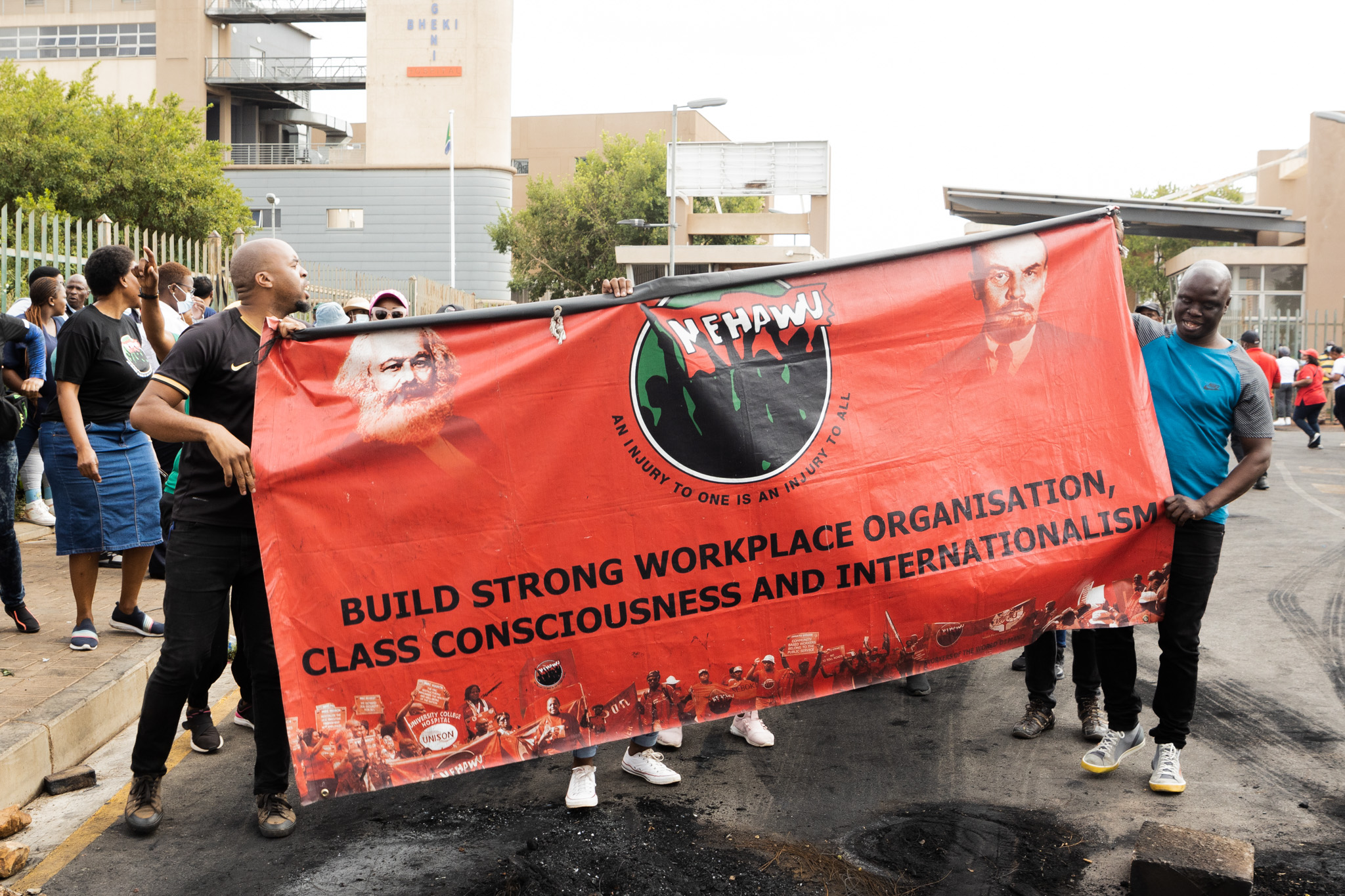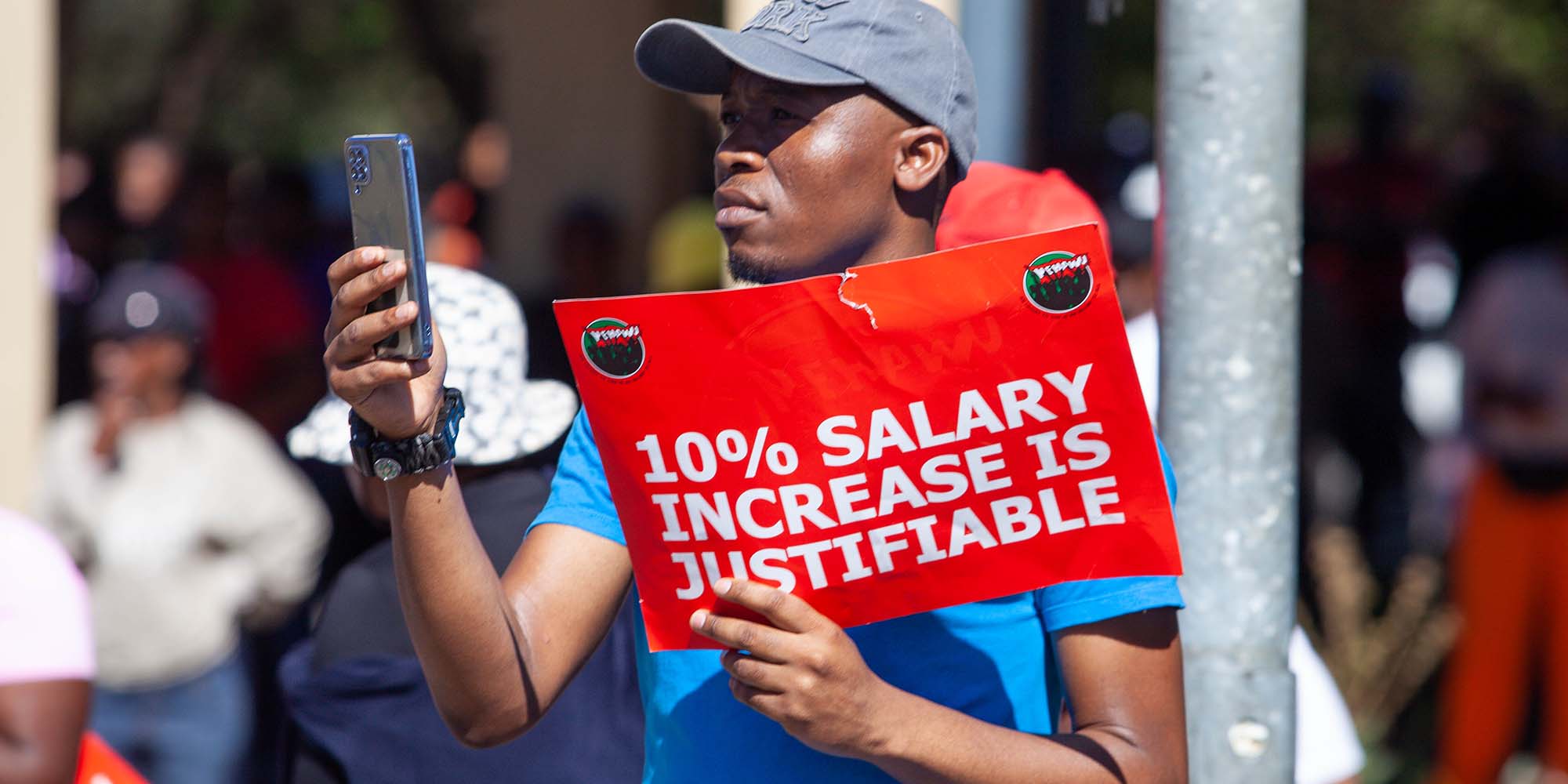NEHAWU DEATH STRIKE DAY SEVEN
Health workers blame continued strike on government for not accepting their demands

The National Education, Health and Allied Workers’ Union has vowed to intensify its week-long strike on Monday until the government accedes to its demands.
National Education, Health and Allied Workers’ Union (Nehawu) General Secretary Zola Saphetha said the government continued to show them the middle finger and displayed a high level of arrogance by totally disregarding the plight of workers even with the ongoing facilitation process at the Public Service Coordinating Bargaining Council (PSCBC).
“We reiterate that this sixth administration is hell-bent on destroying the collective bargaining rights of workers and made it its task to reverse and roll back the gains made by workers over the years.
“This is evident through numerous actions and continuous appetite of approaching labour courts in resolving matters of collective bargaining as opposed to taking advantage of institutions of dialogue such as bargaining councils, etc,” he said.

Nehawu members protest outside Chris Hani Baragawanath Hospital in Soweto on 9 March 2023. (Photo: Gallo Images / Papi Morake)
“The government decided to approach the courts to interdict our national strike. On the eve of the commencement of the strike, the Department of Public Service and Administration (DPSA) approached the Labour Court filing an urgent interdict against the strike. The court granted DPSA the order.
Visit Daily Maverick’s home page for more news, analysis and investigations
“We immediately filed an appeal on that order… by implication, Rule 18 of the Superior Courts Act 10 of 2013 kicked in — this rule automatically suspends the operation of the court order until the leave to appeal is determined and thereby allowing us to commence with our strike,” he said.
He said that once again, the DPSA urgently approached the court to file an urgent application for the execution of the order and the matter was heard on Monday, 6 March. Judgment was delivered on the same day with the department being granted an execution order.
“The union subsequently launched an automatic appeal at the Labour Appeal Court (LAC) in terms of Rule 18 of the Superior Courts Act 10 of 2013 which also suspended the operation of the execution of the order by Justice van Niekerk. On Friday, 10 March, the Labour Appeal Court heard our appeal on the execution order of the interdict by DPSA and after hearing all arguments it reserved judgment until Monday, 13 March 2023.
“The national union will await judgment and will immediately meet our lawyers for legal recourse to be considered,” he said.
Saphetha said no amount of litigation or intimidation by the government would deter them from the cause that they had embarked on — fighting for public servants, defending collective bargaining and the rights of workers.
‘Some victories’
“The strike has registered some victories, key amongst them is the PSCBC facilitation process which forces the government to go back to 2022/23 discussions on salaries of public service. At the same time, we have managed to engage with several provincial health departments and this led to institutional managements and our structures working out modalities to ensure access to hospital services by our communities,” Saphetha said.
He said that since the promulgation of the Labour Relations Act, the employer had been refusing to engage on a framework for the Minimum Service Level Agreement.
“They have been bogged down in their position of depriving public servants of their right to strike. On 7 March 2023, the PSCBC invited the union, along with other parties in dispute, to the facilitation process… to try and break the impasse or the strike action that commenced on 6 March 2023.”
He said they met with the employer on Friday and presented their issues, and the employer replied by saying they were not averse to the process.
“To our dismay, the negotiators of the employer made a U-turn when we thought that we are registering progress by indicating that they are no longer interested in negotiating a settlement agreement to resolve the impasse.
“The employer arrogantly demanded that we must drop the dispute process and return to the council to engage in the 2023/2024 public service wage negotiations. Again, this is another demonstration of how far the government is prepared to undermine and collapse collective bargaining and dispute resolution mechanisms by imposing their will on workers,” Saphetha said.

Nehawu members protest outside Bheki Mhlangeni Hospital in Soweto on 8 March 2023. (Photo: Gallo Images / Fani Mahuntsi)
He said they were aware that certain ministers inside the Mandating Committee of the employer had refused to support the new minister of public service and administration, Noxolo Kiviet, in resolving the impasse.
“Instead, they engage in tactics to divide unions and we want to warn them that this approach is regressive and will collapse the public service,” he said.
He said that from the onset of the facilitation process, they had been upfront in trying to resolve the dispute by tabling a proposed settlement agreement which includes:
- Cessation of hostilities, which was meant to see parties agreeing on resolving the strike and addressing issues linked to hostilities;
- Defending the PSCBC and collective bargaining, which meant that the parties would agree on defending the PSCBC. As such, the unions currently not part of the 2023/24 round of collective bargaining would return to the council and participate fully;
- Augmentation of the 2022 increase — the state having unilaterally implemented a 3% salary increment for the 2022/2023 financial year, will augment the 3% with a percentage to be agreed by parties; and
- A Minimum Service Level Agreement, to which parties agree that the long outstanding issue of the minimum service level agreement be concluded at the council within six months.
‘The government is not interested’
“It is becoming quite clear to us that despite all our efforts to resolve the dispute, the government is not interested in concluding the 2022/2023 dispute as they argued that they have closed and concluded the negotiations in that financial year. This was despite the fact that there was no resolution for that financial year, but rather a unilateral implementation of the 3%, which was way below the CPI,” he said.
He said they would continue with the strike in a more intensified manner on Monday to demonstrate to the government the seriousness with which they took the concerted effort to underplay the role and significance of public servants who were at the coalface of service delivery.
“The 2022/23 offer is still in dispute, hence our strike. We are resolute in rejecting 3%, given the average inflation rate of nearly 7% in the 2022/23 financial year. We could not jump into a new wage bargaining round for 2023/24 when the employer has effectively just unilaterally imposed a wage cut of 4% in the pay packet of an average public servant,” he said.
Saphetha said at stake was not just the wage dispute of 2022/23, but also collective bargaining, given the unilateralism prevailing in the public sector.

A Nehawu member protests outside Chris Hani Baragawanath Hospital in Soweto on 9 March 2023. (Photo: Gallo Images / Papi Morake)
“As Nehawu, we want to put the employer on notice that we are now in consultation with our lawyers over this imposition of 3% for the 2022/23 financial year. We want to draw the attention of the public to the fact that clause 3.3 of Resolution 1 of 2021 states that if no new agreement is reached by 31 March 2022 on the 2022/2023 salary adjustment, this non-pensionable cash allowance shall remain in force until a new agreement is entered into by the parties,” he said.
Saphetha said there was no new agreement on the 2022/2023 salary adjustment and therefore the employer was once again in violation of the agreement it had signed.
“As Nehawu, we remain unwavering and consistent in rejecting unilateralism and the erosion of collective bargaining in South Africa,” he said.
‘Government to blame for violence’
Saphetha blamed the government for the countrywide problems resulting from the strike, stating that they had written letters to all provinces — including health departments — a week before the start of the strike, requesting that all provincial health departments meet with representatives of Nehawu, particularly at the institutional levels in hospitals.
“We realise the impact of a strike in that service, so that’s why we then arrange that kind of a meeting… but unfortunately, government showed us the middle finger. They have told us directly, in writing and in meetings, that is not their responsibility to ensure the functioning of hospitals.”
Saphetha said all health departments in other provinces except North West had interdicted the activities associated with matters of intimidation and so forth — not the strike.
“We have called our members to comply or to work within the framework of those interdicts while continuing with this strike,” he said.
Saphetha said that although the minister of health, Dr Joe Phaahla, had been reported as stating as fact that four lives had been lost as a result of the strike, the same minister in the same interview contradicted that, saying they were still investigating.
“We must be given a space to exercise our right to await the conclusion of that investigation by the state… once that is public, then we can respond to it. We don’t want to interfere with the investigation by pronouncing now, because there’s a serious allegation [that has been] made,” he said.
Nehawu’s deputy general secretary, December Mavuso, said not all categories of employees in the Department of Health fell under essential services.
“When we call workers on strike in the health sector, it is those that do not fall under the essential services that go on strike. It is particularly your corporate services and your administration. People are made to believe that anything and everything in the sector is essential services,” he said. DM/MC



















Blame shifting does not exonerate you from criminal acts,.You are despicable, when you are into health care and you are only in it for the money,and you endanger lives of sick people.
Your productivity for Monday seems better than when you actually work Nehawu members